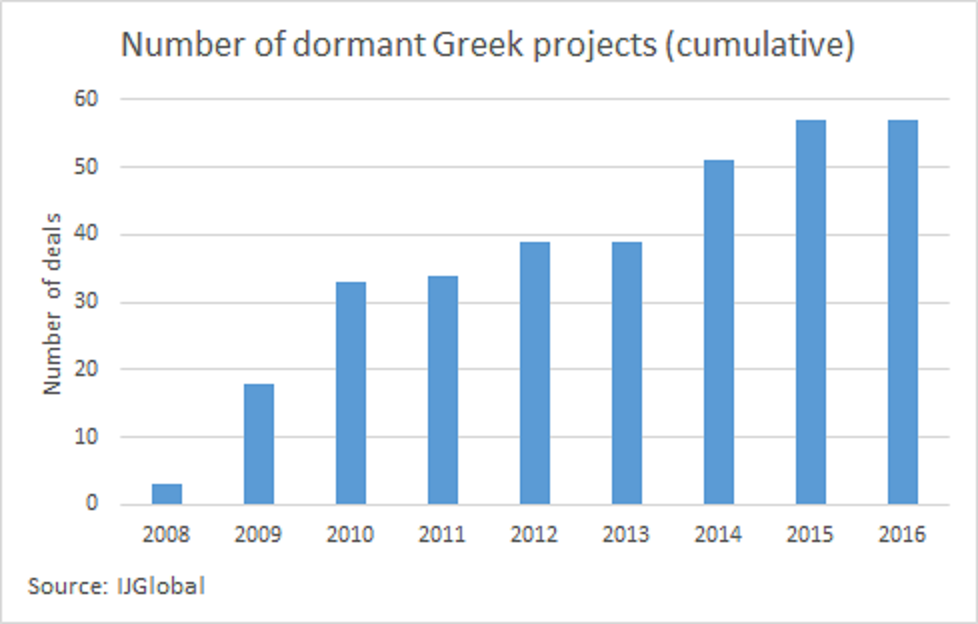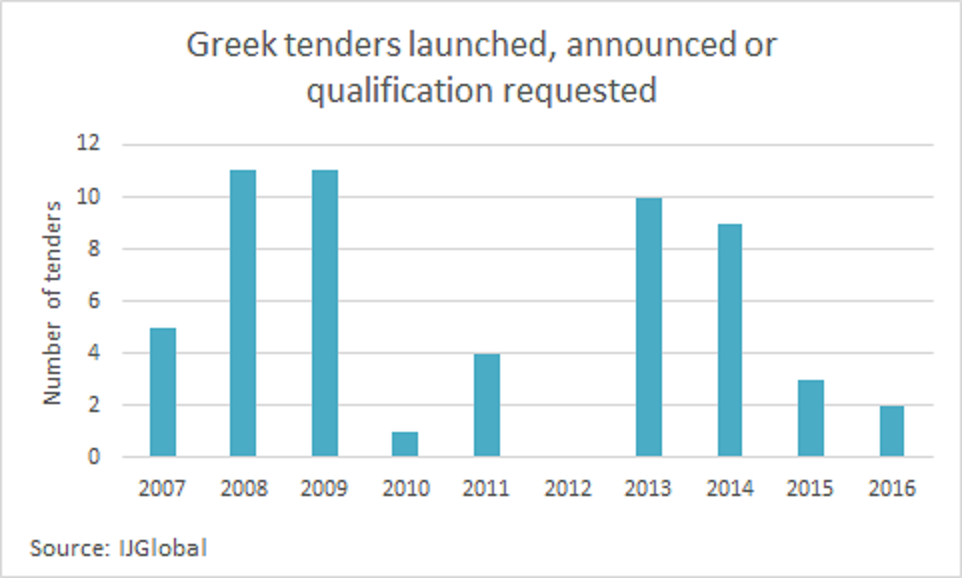Hope for Greece's infrastructure sector
Greece has been through a challenging period. Over the six years of recession that followed the financial crisis of 2007-2008, the country’s GDP contracted by more than 25%. Last year, radical left wing party Syriza swept to power in opposition to the austerity policies imposed as part of the country’s European bailout deals. Syriza was forced to accept conditions imposed by the EU in exchange for another bailout.
The upheaval has certainly been felt in the country’s infrastructure and energy sectors. Many of the tenders launched or announced in 2008-2009 failed to progress to concession award and financial close, reflecting limited confidence in the economic viability of projects in the country.
At the height of austerity and GDP contraction, very few new tenders were announced or launched, and even once new deals were being proposed, many of these were ultimately delayed for years or abandoned.
In this context, 2016 may mark a turning point. Since last year, cumulative numbers of dormant tenders for infrastructure and energy projects have flattened, and with a number of hopeful developments on the horizon, it is possible the situation in Greece is starting to improve.
Last week, a local source confirmed that the tender for the new Kastelli International Airport PPP in Crete, which is intended to replace a severely congested existing airport, has entered the bidding phase. This tender had previously been scrapped in 2011 after multiple delays, but was brought back to market in 2014. Since then, the political crisis resulted in further setbacks, but with interested bidders now expected to make offers for the project by the end of September, it is likely the procurement process will progress.
Earlier this summer Greece’s privatisation agency HRADF signed an MOU with Greek developer Lamda to proceed with the acquisition of part of the real estate of the disused Athens airport of Hellenikon and its 99 year lease to develop the property. The deal was originally agreed in 2014 but was held up by disagreements and technical difficulties. The privatisation is an important condition for further bailout funds to be provided to Greece.
Additionally, the deal that saw a consortium led by German airport operator Fraport receive a 40-year concession to manage 14 regional Greek airports in late 2015 is also progressing. The Greek parliament concluded ratification of concession contracts in May, hopefully bringing Greece’s infrastructure stagnation firmly to a close.
Request a Demo
Interested in IJGlobal? Request a demo to discuss a trial with a member of our team. Talk to the team to explore the value of our asset and transaction databases, our market-leading news, league tables and much more.

